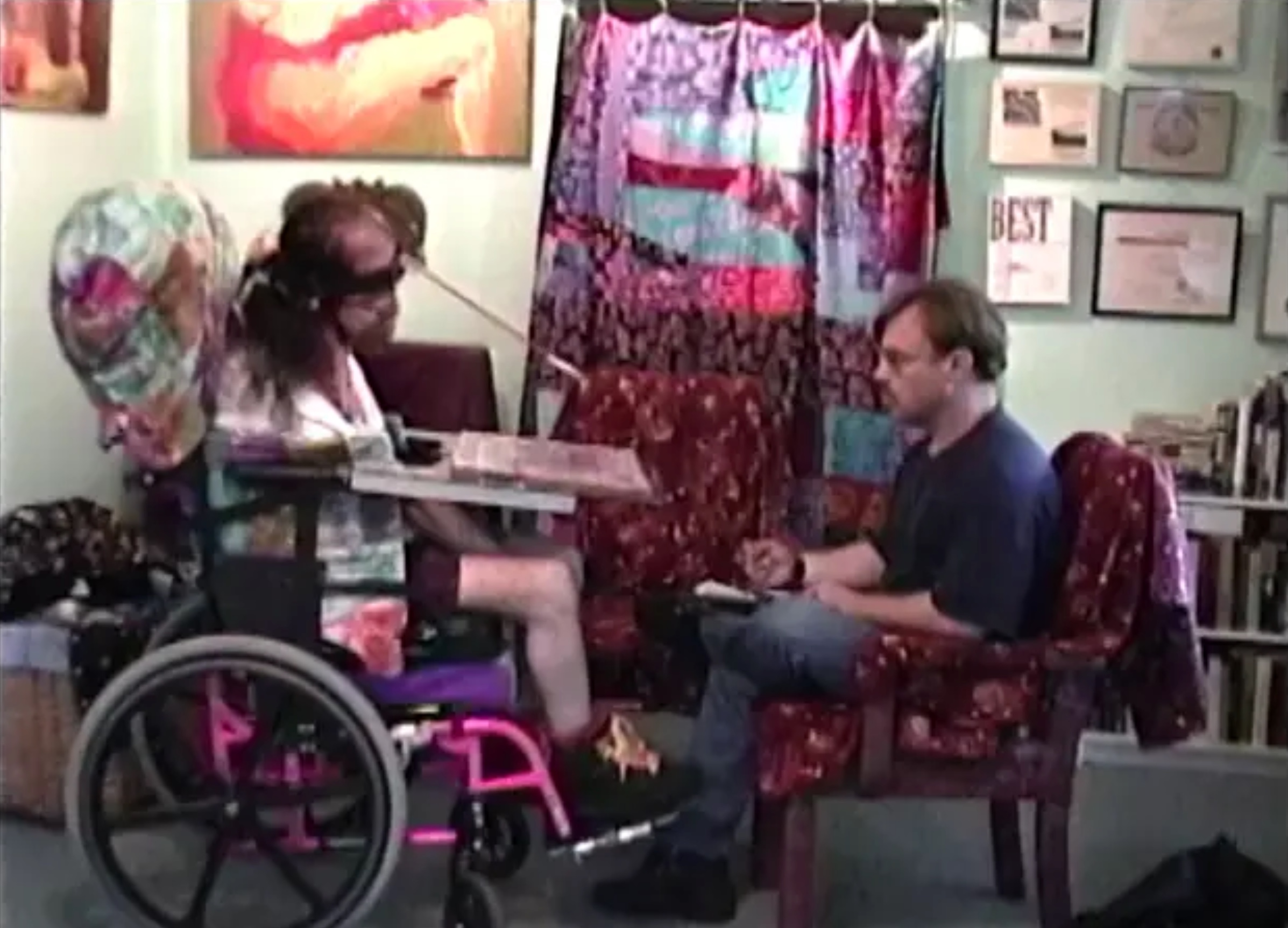The text below is from Russell Shuttleworth’s introduction, “How to Handle a Shaman?”, from the section, The Disability Rights Movement and the Personal is not the Political.
For many in the Disability Rights Movement, their personal lives were lived in the shadow of the political struggles of the movement. In other words, they took to heart the feminist mantra that “the personal is the political’. Frank saw that living one’s personal life as if it were in continuous reference to oppressive structures limit human potential and also in a sense validated these structures. Whereas Frank could converse in one minute on the structural level of changing society through laws and political action, he refused to play the victim in his personal life. He believed that personally taking up the victim role led to the inability to take personal risks, the latter which was essential for the kind of creative lifestyle he was forging.
This kind of thinking had several different strands that clashed with the movement. For example, Frank refused to prioritize his impairment and disability in his art. Taking off in the 1980s but hitting its stride in the 1990s, a flourishing disability art scene emerged with much of the art implicitly if not explicitly referring back to its origins in disability. While Frank acknowledged this art scene and the artists within it, he chose to situate his art within the wider spectrum of human expression. He was first and foremost an artist, not a disabled artist. This is not to say that Frank ignored the fact that being disabled provided him unique opportunities to express himself. In fact, he often said he was lucky to be born as he was with cerebral palsy because it enabled him to more easily take on the role of a transformative force. And he often used his disability in his work to shock and subvert what he considered to be an oppressive normative reality. But Frank realized that limiting his art to simply expressing his individual impairment and/or the disabling structures in society was to miss the larger point of human expression.
Frank, it seemed, was often out of step with the Disability Rights Movement. Another point of contention, especially around the time of most of these interviews during the late 1990s and early 2000’s, can clearly be seen in his approach to personal assistance. An early experience with a personal assistant pulling a gun on him, was the first and last time he viewed ‘personal assistance’ in economic and transactional terms. Dispensing with seeing this relationship as primarily one of employment, he came to the insight that people actually ‘needed’ to assist others. This understanding gave Frank the courage to take the risk and travel across the United States by himself, picking up people who were willing to assist him along the way. When I began interviewing him in 1997, his tribe had been providing Frank with the assistance he needed in his daily life for many years. While these services were paid for by California’s In-Home Support Services, this money was thrown into the tribe’s kitty as simply one person’s contribution in getting all their basic needs met. Frank had grappled with feeling he was a burden on others when he was younger, but he had totally banished the idea that he was burden during his 20s. He came to view his need for assistance as relational to others in the group, in which he contributed in many ways to the well-being of the whole. On one occasion, government funding was on the verge of being slashed for California’s In-Home Support Services, Frank recognized that a cut in the funding of this program would negatively impact many disabled people’s lives, but he also told me during one of the interviews that this revealed the fragile reality of relying on the system for support. Aside from a diminishment of income, it would not affect his ability to get his support needs met.


